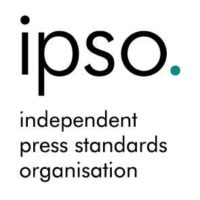By Lucy Caulkett
The press watchdog IPSO has revealed it issued 60 notices to news outlets over concerns about incidents including alleged harassment by journalists in 2018.
The Independent Press Standards Organisation revealed the number of private advisory notices it handed down in 2018, requesting journalists to desist from making further approaches to people. It was not clarified whether the notices were sent to individual journalists or publications as a whole. The figure was revealed in a blog by IPSO communications manager Vikki Julian on how the organisation deals with concerns about harassment.
The revelation comes on the day after the funeral of television presenter Caroline Flack, who committed suicide on February 2015. A petition signed by 850,000 people was subsequently sent to Downing Street requesting a law to make it a criminal offence for the press to bully or harass anybody, including celebrities.
Julian wrote: “Last year we issued 60 private advisory notices in response to concerns about harassment. They are confidential, not for publication, and can be sent to individual newspapers or to the industry generally.
“Unlike broadcast regulators, we can act before publication, so we also send the notices to broadcasters who – although not regulated by IPSO – receive them on a goodwill basis.
“In addition to requests that journalists desist from further approaches, the notices may also pass on concerns about the potential publication of intrusive or private information or help people find space at a time of grief or shock – making clear, for example, that those who have suffered a bereavement do not want to talk to the press.”
Vikki added: “A private advisory notice isn’t an injunction or an order to a newspaper, and is not a tool for ‘killing’ a story, but it is an effective way of communicating with the industry as a whole.
“Failing to comply with a desist request may be a breach of the Code (unless the editor can show a public interest defence).”




